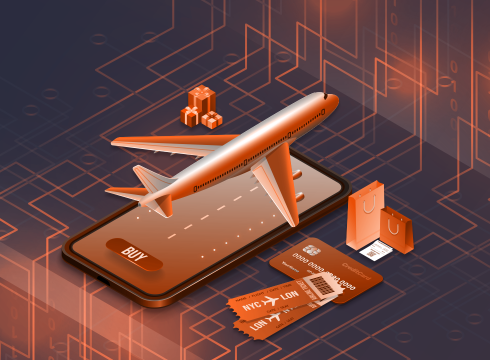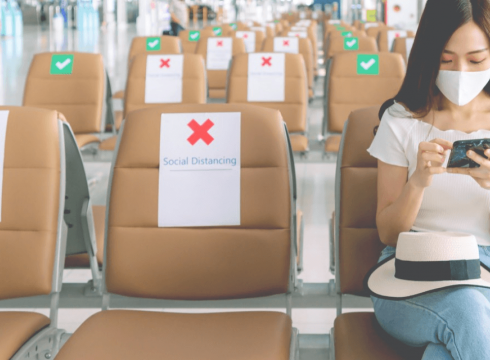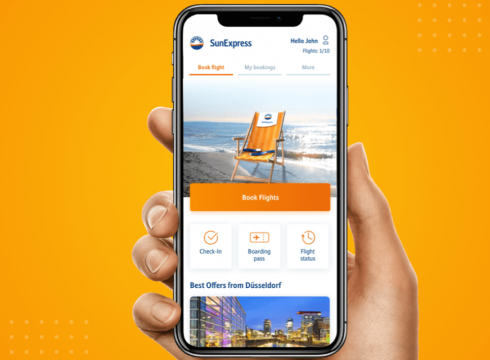The Future of Modern Airline Retailing is Here, and You’re Welcome to Join

The Future of Modern Airline Retailing is Here, and You’re Welcome to Join
It’s no secret that the airline industry is undergoing a major transformation. Customers are demanding more choice, convenience and personalisation in their travel experience. Competition is intensifying from new entrants and alternative modes of transportation. Technology is evolving rapidly and creating new opportunities and challenges for distribution and communication.
How can you stay ahead of the curve and thrive in this changing environment? How can you leverage your data and capabilities to create more value for your customers and your business? How can you differentiate yourself from your competitors and increase your market share and profitability?
The answer lies in airline retailing, a customer-centric approach that allows you to offer more personalised and differentiated products and services to your customers across different channels. It also enables you to generate more revenue and value from your core and ancillary offerings.
According to a recent report by IATA, airline retailing has an industry value creation potential of up to $7 per passenger industry average or the equivalent of approximately 4% of revenue. However, not all airlines are equally prepared to capture this opportunity. The report also reveals that there is a wide gap between the most advanced and the least mature airlines in terms of their retailing capabilities.
To close this gap and join the transformation, airlines need to adopt new technologies and standards that can enhance their communication and distribution with their customers and partners. One of these standards is NDC (New Distribution Capability).
In this blog post, we will explore how NDC can benefit airlines, travel agents and customers, what are the challenges of implementing it, and how you can join the modern airline retailing transformation successfully.
Meet Modern Airline Retailing
What does it mean to be a modern airline retailer? It means that you can offer your customers more than just a seat on a plane. It means that you can create and deliver personalised and differentiated offers and services that match their needs, preferences and willingness to pay. It means that you can communicate and distribute these offers and services across different channels, including direct and indirect ones. It means that you can optimise your revenue management and pricing strategies based on real-time data and customer feedback.
Modern airline retailing is not just a nice-to-have option. It is a must-have capability to survive and thrive in the post-pandemic world. Global passenger traffic is expected to recover to pre-COVID levels by 2024. Still, revenues will lag behind by one year so that airlines will face continued pressure on their margins and profitability. To overcome this challenge, airlines must diversify their revenue streams and increase their ancillary sales.
According to IATA, ancillary sales accounted for 12% of total airline revenues in 2019, up from 5% in 2010. However, there is still room for improvement. IATA estimates that airlines could generate an additional $20 per passenger if they adopt modern retailing practices.
One of the key enablers of modern airline retailing is NDC, which allows airlines to offer more dynamic and transparent fares and ancillaries. NDC enables airlines to:
- Provide rich content such as images, videos, descriptions, and dynamic pricing, such as bundles and discounts for their products and services,
- Offer personalised recommendations based on customer profiles, such as frequent flyer status,
- Display all-inclusive prices with full transparency of taxes and fees,
- Simplify the booking process with fewer steps,
- Enable seamless changes or cancellations with minimal fees,
- Facilitate cross-selling or upselling of other products or services from partners, such as hotels or car rentals,
- NDC also benefits travel agents who can access more content and offers from airlines directly without intermediaries. And it benefits customers who can enjoy more choice, convenience and value in their travel experience.
Why It’s Mandatory to Adopt Modern Airline Retailing
You may be wondering why you should adopt modern airline retailing and NDC. After all, you may already have a loyal customer base and a well-established distribution network. You may think that changing your business model and technology will be too costly and complex. You may also worry about losing control over your inventory and pricing.
However, these are not valid reasons to resist the change. In fact, they are the very reasons why you should embrace it. Modern airline retailing and NDC offer you many benefits that outweigh the costs and challenges of implementation. Here are some of them:
Increase your customer satisfaction and loyalty
According to a survey by IATA, 71% of travellers said they would be more likely to book with an airline that offers personalised offers based on their preferences. By offering more personalised and differentiated products and services to your customers, you can increase their satisfaction and loyalty. You can also improve your brand image and reputation by providing more transparency and value.
Increase your revenue and profitability
According to IATA, airlines could generate an additional $20 per passenger if they adopt modern retailing practices. By offering more dynamic and transparent fares and ancillaries to your customers, you can increase your revenue and profitability. You can also optimise your revenue management and pricing strategies based on real-time data and customer feedback.
Increase your market share and competitiveness
IATA’s report reveals that 65% of travellers said they would use multiple channels to compare prices before booking. By offering more content and offers across different channels, including direct and indirect ones, you can increase your market share and competitiveness. You can also reach new segments of customers who may prefer different modes of booking or payment.
Increase your innovation and agility
By adopting new technologies and standards that enable modern airline retailing, such as NDC, you can increase your innovation and agility. You can also leverage the capabilities of other partners who have adopted NDC, such as travel agents or aggregators. According to IATA, 75% of travel agents said they would use NDC-enabled content if it was available.
As you can see, modern airline retailing is not only beneficial but also mandatory for airlines that want to survive and thrive in the post-pandemic world. The question is not whether you should adopt it but how soon you can do it.
Here’s Your Key to Modern Airline Retailing
As you can see, modern airline retailing is not just about selling tickets but about creating memorable experiences for travellers. It’s about offering them the right products and services at the right time and price through the right channels and devices.
But how can you do that in a complex and competitive market? How can you stand out from the crowd and showcase your unique value proposition? How can you manage your inventory, pricing, distribution, and customer data efficiently and effectively?
Our answer is Ubimecs Airline Module. Developed by a team that has years-long experience in e-commerce, payments, and airline solutions, Ubimecs is a platform that empowers airlines to become modern retailers. Most importantly, it has NDC capabilities, giving airlines more control over their content & pricing, and enabling them to offer rich and dynamic offers to their customers.
Ubimecs Airline Module also helps airlines optimise their revenue management, inventory control, customer relationship management, loyalty programs, and more—all on the same platform. It provides a user-friendly interface that simplifies workflows and reduces operational costs. With Ubimecs Airline Module, you can transform your business models and deliver better value to your customers in the most effective way possible.
Don’t miss this opportunity to take your airline business to the next level. Visit https://thinksmobility.com/solutions/ubimecs-airline/ today and discover how Ubimecs Airline Module can help you achieve modern retailing success!




